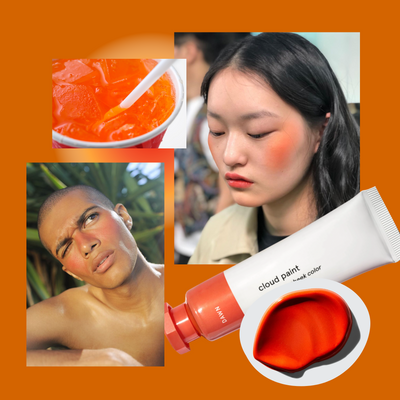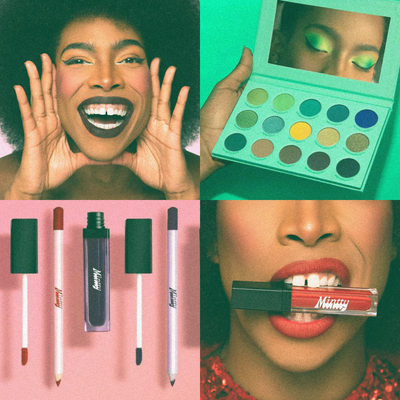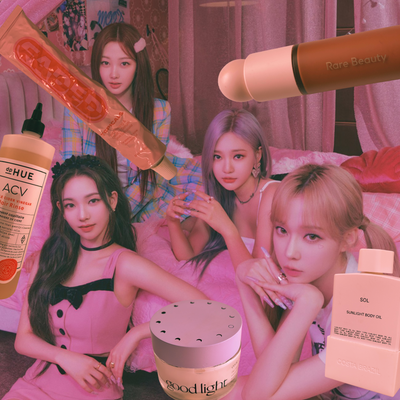
In partnership with Roman
Masculinity: let’s talk about it. From the inception of our site back in 2016, our mission statement has been to redefine masculinity. A year and a half later, masculinity is now front and center in our national conversation. It’s why we decided to launch our first Masculinity Week. We’ve partnered with a company that shares our values with Roman, a company that’s redefining the relationship men have with their own health. They believe that the more we talk about, communicate, and confront our problems, the more empowered we’ll be. This week, we’re introducing important stories unpacking masculinity and how we, as men, can empower one another. We’re in this together.
Talking about masculinity is touchy. But here we go.
Since our launch in 2016, Very Good Light has been presenting masculinity through a broad lens, representing our community of men as diverse, three-dimensional beings. He may wear makeup, play sports, cry alone, cry in groups, can be as emotional and as vulnerable as he wants. Most of all, he can have the audacity to be human. It’s one reason that we’ve decided it’s finally time to tackle masculinity head-on with our first-ever Masculinity Week. We’ve partnered with Roman, a startup that’s all about raising awareness on men’s health, to help tell empowering stories all week, while dissecting what it means to be an evolved guy in our modern era.
SEE ALSO: Terry Crews just opened up about new masculinity and we’re happy crying for the future
Our goal has always been to “redefine masculinity,” dismantling the patriarchy and postulating that a man can be whomever he wants, defining who he is on his own terms. Once considered a message for a niche audience, “redefining masculinity” has now exploded into the public zeitgeist.
So how did we suddenly get here?
While there are many factors at play, social movements like #metoo, political division, as well as the gender divide have helped our culture to stop, examine and unravel who we are.
Among all deaths by suicide in this country, 4 out of 5 are men.
“In 2018, there’s an implosion with a mirror being held up to us all,” explains Professor Wizdom Powell, a masculinity and mental health expert and associate professor of psychiatry at the University of Connecticut. “These rigid definitions of masculinity have not been working for anyone and affects us all.”
Such rigidity can lead to what we now know as “toxic masculinity.” That’s what psychologists refer to as an unhealthy exaggeration of male behavior expressed as violence, sexuality, or show of strength. Such behavior could start with harassment, bullying or ridicule, but can also lead to lasting negative behaviors, including rape, murder and/or self-harm. The latter is why experts say that masculinity is in crisis. A recent study from the American Foundation for Suicide Prevention reveals a sobering truth about men: among all deaths by suicide in this country, 4 out of 5 are men. It’s no wonder that experts are calling this a genocide.
“Men feel they can’t reach out or talk about their feelings because it may make them seem or be perceived as weak,” says Sachin Doshi, director of development at Mental Health America. “In general, when men ask for help they don’t feel comfortable unless they feel reciprocity. That is, if they feel they can do something for you in return, they’ll ask for it.” It’s a big factor that plays into mental health (which we’ll get into later this week) and the lack of care for men who aren’t comfortable opening up.
“I wholeheartedly believe that seeking help is one of the most heroic display of one’s humanity that I can think of.”
It’s a reason why we need to confront why men are even closed up in the first place. A quick look back into history shows generations upon generations of forcibly repressing masculinity, one that seems to strangle man’s ability to live authentically. As we’ve seen throughout many cultures, strict gender roles were instilled to protect man’s power over woman, which explains why “masculine” roles were based off of strength, leadership and power, as opposed to “feminine” roles made to express the opposite, such as subservient roles that are deemed as weak. These unfair rules are still what society at large abides by. We still choose to extol girls who take on “masculine” roles like changing a tire or weightlifting, while we ridicule boys for “feminine” behaviors such as wearing heels or putting on makeup. At the core, it reveals just how our culture is built on a foundation of misogyny.
Sure, we’ve already discussed at length how masculinity has its problems. But there’s one aspect no one is talking about and that’s the positivity of masculinity and how it’s changing for the better.
“I feel we have to be careful not to narrow the lens that masculinity is only toxic,” says Powell. “That doesn’t help anyone. I think that conversation to be more problematic.” It also makes most men defensive and unwilling to change.
The first step in promoting healthier masculinity is simply opening up, Powell adds. “I wholeheartedly believe that seeking help is one of the most heroic display of one’s humanity that I can think of. To be willing to admit that perhaps you’re having some difficulty requires such a level of strength and character and critical awareness of your internal life.”
Vulnerability is what is the remedy to change our culture of masculinity. And what’s exciting is that it’s happening on a big scale. We now have celebrities like Jay Z speaking out on his experiences with mental health. There’s athletes like Kevin Love, penning essays about anxiety. Men like Terry Crews are leading the charge on new masculinity and how men, too, face situations like sexual harassment.
We also have real guys who are making huge impacts on a micro level. These come in the form of regular men at ground-level who express their authenticity and are rejecting strict gender norms on their own terms. You’ll meet these guys all week, learn more about the changing face of masculinity, while hopefully learning a thing or two about we can evolve to a better place. After all, you’re not alone. We’re in this together.







